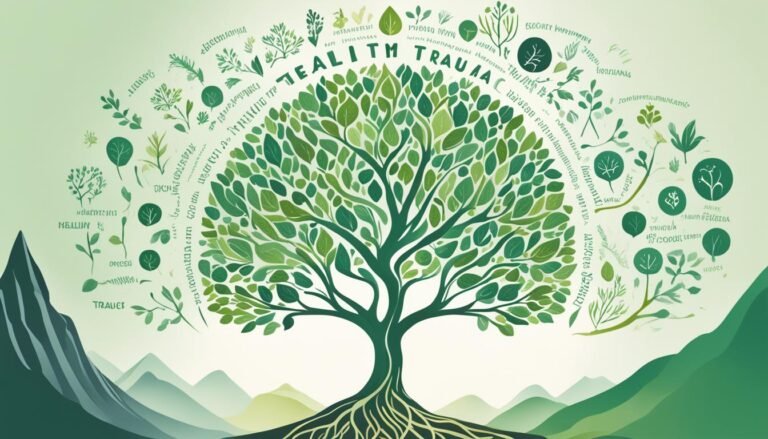Prioritizing Self-Care and Resilience: A Guide for the Irish Workforce
In Dublin’s busy streets, a software developer faced growing fatigue, tight deadlines, and endless client meetings. Despite his love for his job, stress was taking a toll on his well-being. Many workers in Ireland feel the same weight of work-related stress (WRS). This issue is common due to intense competition, economic uncertainties, and heavy workloads, reflecting global challenges.
Work-related stress goes beyond missed deadlines and a drop in productivity. It causes anxiety, burnout, and even physical health problems. The Health and Safety Authority says WRS, including burnout, makes up nearly half of the work-related ill-health cases in Ireland. Burnout alone leads to 11.7 million lost working days yearly.
The good news is that self-care and resilience strategies can help. Things like flexible work hours and counseling services can lessen the negative impacts of stress. Support from Employee Assistance Programs (EAPs) and trained managers is key. They help spot and address high stress in workers early.
It’s crucial to focus on employee mental health in Ireland. This makes understanding and practicing self-care routines very important. By putting self-care and resilience first, we can make workplaces healthier. This way, everyone’s wellness and productivity last longer. Let’s look at how to create a work culture that supports everyone.
Key Takeaways
- Work-related stress poses major challenges in Irish businesses, driven by tight deadlines and competition.
- Heavy workloads, lack of control, and blurred work-life boundaries are common stressors.
- Boosting resilience and emphasizing self-care strategies can help reduce stress and avoid burnout.
- Interventions like flexible work hours and counseling services in the workplace can enhance employee well-being.
- Quick and effective steps, including Employee Assistance Programs and training for managers, are crucial for managing stress.
Understanding the Importance of Self-Care in the Workplace
Today, work in Ireland is quick and challenging. It’s important for people to take care of themselves. This helps keep mental and emotional health in good shape.
What is Self-Care?
Self-care is anything that makes you feel good. This could be exercise, meditating, or just relaxing. In Ireland, making self-care a daily habit is key to growing in work and life.
Why Self-Care Matters for the Irish Workforce
Taking care of yourself is crucial for work. Burnout, especially in healthcare, is a big problem worldwide. In the recent times like the COVID-19 pandemic, it’s even more critical to look after mental health. Self-care helps with this.
Real-World Examples and Benefits
Recent crises have shown us why we need self-care. Depression and anxiety are costing the world’s economy a lot of money. By caring for themselves, workers and their employers can avoid these costs.
In Ireland, self-care makes for happy and hard-working employees. It leads to a workplace with less burnout and more joy. This creates a strong and efficient team.
Work-Life Balance: Strategies for the Irish Workforce
In Ireland, many are focused on finding a good work-life balance. It’s key to do well at work and feel good at home. We’ll look at what work-life balance is and how Irish companies are getting it right.
Defining Work-Life Balance
Work-life balance is about finding the right mix between work and personal life. It makes sure neither is too much for us. Research shows this balance needs regular checking and adjustment. For the Irish, this includes tweaking our routines to keep things in harmony.
Effective Strategies
Here are some tips to help find balance:
- Prioritize Tasks: Focus on what’s most important to work smarter, not longer, reducing time-wasting.
- Flexible Working Options: 81% of people prefer jobs that allow for working from home and choosing hours that suit them.
- Legal Breaks and Rights: Follow the law on breaks, number of hours worked, and parental leave to help keep balance.
- Track Working Hours: Keeping track of your hours can show you when you’re working too much.
- Communication and Mental Health Support: Talking about stress at work and having support for mental health is very important.
Case Studies from Irish Companies
Irish companies are trying unique ways to keep their people happy and less stressed:
- Aramark Northern Europe: Elbha Purcell guides this company to focus on wellness and flexible work to support mental health.
- Team Dynamics and Leadership: Su Carty shows how caring for everyone at work can be great during tough times.
- Tech-Forward Approaches: Some use tech to watch over how employees work from home. This stops overworking and helps everyone stay well.
Finding the right work-life balance never stops. It’s about keeping in touch, having flexible work, and always checking how we’re doing. With these efforts, Irish workplaces can be better places for all.
Stress Management Techniques for Employees
In a busy workplace, stress can harm how well we work. It’s key for staying productive and feeling good. We’ll look at how to spot what makes us stressed, ways to feel better, and tales of success from workers in Ireland. Understanding and using these ideas can boost how happy we are with our job.
Identifying Stress Triggers
Figuring out what causes stress is the first step to deal with it. A study found that work was a main stress for 76% of Irish workers. Family duties stressed out 58%. Too much stress can hurt our mental health and how we perform at work and at home. Here are some common things that stress us out:
- High workloads
- Lack of support
- Unclear job expectations
- Work-life imbalance
Practical Techniques
Beating workplace stress means trying different ways to relax. Here are simple techniques that work:
- Mindfulness and Meditation: They can ground us and lower anxiety, making us think clearer.
- Regular Physical Activity: Working out is great for busting stress. But only a quarter of workers exercise enough. More of us need to make it a part of our daily routine.
- Time Management: Putting things off can really stress us out. So, managing our time better is a big step in feeling calmer at work.
- Healthy Coping Mechanisms: Most workers use bad ways to cope with stress, like too much screen time or overeating. Better ways like picking up a hobby or hanging out with friends are smarter choices.
Success Stories from the Irish Workforce
Real success stories from Ireland show how well these techniques work. Take a Dublin tech company, for example. They started mindfulness sessions, and stress among workers dropped big time.
Or look at a health institution. Their wellness programs with sports and healthy eating tips made employees happier and cut down on missed work. These stories prove that dealing with stress the right way makes a huge difference in our happiness and how well we work.
Employee Wellbeing and Mental Health Support
Supporting mental health at work is critical today. In Ireland, the health care absence rate hit 6.1% in 2020. This shows well-being programs are important, especially as mental health issues grow among workers.
Available Resources in Ireland
The Health Service Executive (HSE) in Ireland helps its 94,575 employees, offering mental health resources. The Employee Assistance Programme provides free support. There’s also support in managing stress from the Workplace Health and Wellbeing Unit and the National Health and Safety Function.
Creating a Supportive Environment
Creating a supportive culture boosts mental health. The HSE introduced the Work Positive Framework in February 2019. It helps spot and stop stress early. Actions like health checks and mental health workshops, such as “Minding Your Wellbeing,” improve overall mental health.
Benefits of Mental Health Support
Investing in mental health resources can prevent burnout. This, in turn, reduces medical errors and legal issues. Prioritizing staff mental health helps build a healthier, more productive workforce. This aligns with priorities in the Healthy Ireland Framework.
In summary, creating supportive work environments and offering mental health resources improves everyone’s well-being. This leads to a stronger, happier workforce in Ireland.
Implementing Corporate Wellness Programs
Today’s work environment is often quick and demanding. This makes implementing corporate health initiatives essential. These initiatives can boost employee health and productivity. By tailoring wellness programs to employee needs, you can see big changes. This includes better health and happier employees.
Designing Effective Programs
A good wellness program meets what workers need. It includes help for mental health, ways to stay fit, and how to manage stress. The Healthy Ireland Strategic Action Plan highlights building resilience and fixing health gaps. Especially in poor areas. So, a complete wellness program offers things like mindfulness and yoga. Plus, it has Employee Assistance Programs to help create a caring workplace.
Examples of Successful Initiatives
Many companies have found success with corporate health initiatives. For example, the Sláintecare Healthy Communities Programme helps where health needs are greatest. It adds things like meditation and gratefulness in journals. This helps people feel better and avoid burnout.
Activities such as job crafting are also key. They adjust how people’s tasks match their skills. It’s an important step, even though it’s not as common as personal practices.
Measuring Success
How do we know if wellness programs work? Setting clear goals is important. Regular, anonymous surveys can tell us if employees feel the program works. Seeing a drop in absences from mental health issues is also a good sign.
Studies show that good wellness programs make work better. People are happier and the company grows. This happens because employees are healthier and miss work less.
Resilience Training for a Stronger Workforce
Today, it’s key to build resilience in teams for our rapidly changing work world. We aim to help employees take on challenges and stress better. By adding resilience skills to training, we make our teams stronger.
Understanding Resilience
Resilience is our ability to recover from setbacks, face change, and keep moving forward. It’s a skill that we can learn and improve through targeted training. This helps create a culture where everyone can adapt and support each other.
Training Programs Available
There are many training programs that focus on building resilience. They include:
- Workshops on managing stress and adapting to change.
- Tools to understand and grow your personal resilience.
- Guidelines to build supportive team environments.
For example, there are programs from 2015 that were then reviewed in 2017. They offer 21 tools that make workforce more stable. Using these tools, employees find it easier to face work challenges.
Resilience in Action: Irish Case Studies
In Ireland, companies are seeing great results from resilience training. Let’s look at some examples:
- Company A: They created a 10-step plan for managers. This plan improved team spirit and lowered stress.
- Company B: By giving customized support and resources, they boosted staff retention and performance.
- Company C: They added resilience into their regular workforce training. This made their team more adaptable and their culture stronger.
These stories show how valuable resilience training can be. It helps build a strong and adaptable team, ready for whatever comes.
Mindfulness Practices for Daily Work Life
Adding mindfulness to work routines can boost your health. This includes mental and physical benefits. Mindfulness activities like exercises help lower stress and make you more productive. We’ll look into techniques and the good they bring at work.
Introduction to Mindfulness
Mindfulness means being alert in the moment. It’s about focusing and not judging what you see or feel. This can reduce stress and anxiety. And, it’s good for your overall mental health.
Techniques for Incorporating Mindfulness
To get mindfulness into your work, try these steps:
- Meditation: Take a couple of minutes daily to meditate. It can be in a quiet place or at your desk.
- Deep Breathing Exercises: Breathing deeply calms the mind and sharpens focus.
- Yoga: Some light yoga during breaks boosts relaxation and flexes your body.
- Regular Breaks: Frequent breaks that focus on mindfulness are vital. They refresh and refocus you.
Impact of Mindfulness on Productivity
Mindfulness helps you think better and be happier at work. A study showed those who were mindful felt less stressed and liked their jobs more. Companies supporting mindfulness experience better employee performance and health.
Research found that mindfulness training decreases stress and boosts focus. This leads to greater productivity and a balanced life at work and at home.
Burnout Prevention: Tips and Strategies
Dealing with burnout is vital as stress at work goes up. A review shows that around 32.8% of doctors face burnout. And over 67.5% who work in critical care and 63% across healthcare deal with it too. It’s crucial to learn good work habits and find solutions to prevent burnout at work.
Burnout brings feelings of being worn out, distanced from work, and not as effective. Here are strategies to help:
- Evaluate Options: Check your tasks and see what you can share or delay.
- Set Realistic Goals: Break big tasks into smaller, achievable ones to feel less stressed.
- Seek Support: Talking to friends and mentors can offer both emotional and practical help.
- Engage in Relaxing Activities: Find time for things you enjoy and relaxation methods like meditation.
- Exercise Regularly: Moving your body is important for your mental and physical health.
- Get Enough Sleep: Making time for sleep is key to feeling better overall.
- Practice Mindfulness: Using techniques such as meditation and breathing exercises can reduce stress.
- Take Time Off When Needed: Don’t forget about taking breaks to avoid stress piling up.
Building resilience is very important, especially for ICU nurses. A strong work atmosphere, clear boundaries between work and personal life, and wellness programs can do a lot to prevent burnout. By using these workplace burnout solutions and adopting healthy work habits, companies can make their employees both happier and more productive.
“Burnout isn’t just about being worked to the bone; it’s about feeling like your work doesn’t matter. Focus on fostering a supportive environment and recognizing achievements.”
It’s crucial to spot the signs of burnout early. Feeling tired, useless, disconnected, or overwhelmed are signs to watch out for. With these tips and strategies, people can handle stress better and stay interested and driven in their jobs.
Holistic Wellness Approaches for Employees
Holistic health programs are vital for a diverse workforce. We’ll take a look at what they involve and how they can be part of workplace culture. We’ll also share stories that show their powerful results.
What is Holistic Wellness?
Holistic wellness means looking at the whole person. It links our thoughts, bodies, and feelings. Pat Divilly, a respected coach, talks about four main areas: Physical, Emotional, Mental, and Spiritual Energy. This broad view of health ensures that workers are not just healthy. They’re also more interested and effective at work.
Integrating Holistic Practices in the Workplace
Bringing holistic wellness to work takes a mix of actions. Sky Ireland and Harvard have made big strides. They’ve boosted health discussions, leading to more water sales and fewer sugary drinks at Harvard. Ireland’s partnership with Suicide or Survive shows how crucial it is to talk about mental health openly.
Pat Divilly suggests looking at 8 categories for wellness: Clarity, Journey, Tracking, Leaders, Re-Investment, Environment, and Accountability. These points help companies improve well-being and success for everyone.
Success Stories
Stories of success underscore why holistic wellness matters. Events by Workplace Wellness Ireland sold out fast. This shows a big interest in holistic wellness. Sky Ireland’s balanced health programs and Harvard’s healthier workplace are great examples. They highlight the importance of personal connections at work.
Overall, holistic health programs improve life at work. They make employees healthier, happier, and more engaged. Companies that invest in wellness see big benefits for their people and their business.
Conclusion
This guide shows how key self-care summary and workplace resilience are for a strong Irish workforce. The World Health Organization says self-care is vital for good health and dealing with illness on your own.
Kennefick (2006) notes that a social care worker’s self is their main tool. It should always be taken care of and developed in their careers.
Combining workplace resilience and self-care methods is essential for a well-rounded life. It’s especially crucial in tough job settings, as pointed out by Moore et al. (2011). They also stress the importance of student practitioners caring for themselves while helping clients.
Greene (2017) proposes adding self-awareness and reflection to self-care plans. This is key for teaching future social care workers. It prepares them to meet self-care standards set by CORU for professional fitness.
- Rolewicz and Palmer provide data on the NHS workforce numbers.
- The Carers Week 2020 report points to the rise of unpaid carers during COVID-19.
- NHS Employers report on gender representation in the NHS.
- Fenton et al.’s assessment of the adult social care sector and workforce in England.
Effective care for mental health and corporate wellness efforts are crucial for a healthy Irish workforce. These methods ensure a supportive work culture that values mental and physical health.
By embracing these learnings, we can strengthen the Irish workforce for a brighter future.
Additional Resources and References
This section is a treasure trove for self-care, resilience, and employee health. It explains why self-care is vital. It lowers stress, boosts mood, and raises energy. This makes you better at handling tough times. These resources offer varied self-care tips.
It is key to spot burnout early. Signs include feeling tired, short-tempered, or having a hard time focusing. A good self-care plan tackles different areas and changes as you need. Physical self-care means keeping fit with exercise, good food, water, sleep, and breaks. Emotional and mental self-care are just as important. Try things like being in the moment, meditating, managing stress, and knowing when to say “no.” These boost mental strength and cut down stress.
Taking care of your social health is also crucial. Strong friendships and family bonds are vital to feeling good. Spiritual self-care connects you with what’s deep and meaningful. This might be a peaceful walk or quiet moments alone. Efficient ways to manage your time ensure self-care doesn’t get neglected. Be it a full hour for a hobby or a short walk during lunch, it all counts.
This self-care plan fits with the big issues workplaces face, especially in health care. By 2030, we may be short 18 million health workers worldwide. An older Europe needs more health pros. Plus, the way a workplace feels affects patient care and team performance. Engaged workers make a huge positive difference.
Dive into the references for even more wisdom and ways to boost your well-being. Learning and practicing self-care helps everyone, from workers to the whole workplace community. It leads to a happier, more efficient workplace.
FAQ
What is Self-Care?
Self-care is taking care of your physical, mental, and emotional health. It involves things like working out, eating well, having fun, and being mindful.
Why does self-care matter for the Irish workforce?
Self-care matters in Ireland to help deal with stress, avoid burnout, and be healthier and more productive at work. It’s key in fast-paced jobs to stay strong and work well.
Can you provide real-world examples of self-care benefits?
Yes, during COVID-19, people practicing self-care had less anxiety and liked their jobs more. This shows that self-care can really help lower stress and bump up happiness.
What does work-life balance mean?
Work-life balance means you juggle work with personal and family time in a healthy way. It helps you avoid feeling overworked and enjoy life outside work.
What are some effective strategies for achieving work-life balance?
Setting clear time boundaries, having flexible work hours, and working from home can help. So can taking breaks. Finding what suits your work and life helps a lot.
Can you share successful case studies from Irish companies on work-life balance?
Ervia in Ireland did well with flexible hours and remote work. This made workers happier and more productive, proving balance is good for business.
How can employees identify stress triggers?
Watching your actions and feelings can show stress signs like being crabby or tired. Making a stress journal is also a smart way to find out what’s causing stress.
What practical techniques can help manage workplace stress?
Mindfulness, deep breaths, moving your body, and managing your time better are good starts. Talking to friends or professionals for support is important. And, taking regular breaks is a must.
Are there success stories of Irish employees effectively managing work-related stress?
Yes, many in Ireland lowered stress by learning how to be tough and using mindfulness. Tech companies in Dublin saw their teams do better and feel well after trying these things.
What mental health resources are available in Ireland for employees?
Mental Health Ireland, Aware, and the HSE’s Mental Health Support Line are there. They offer talks, groups, and advice to deal with mental health issues.
How can a supportive environment be created in the workplace?
Open talk, mental health help, learning to be resilient, and liking a good work-life balance builds support. Bosses showing the way is important here.
What are the benefits of mental health support in the workplace?
Helping your team with mental health lowers missing work, makes them more in, boosts work power, and keeps them loyal. It builds a happy and hardworking team.
How can companies design effective corporate wellness programs?
Good programs start by knowing what your team needs and setting goals. They offer a mix of fitness, mental health lessons, and diets, and get the team interested. Keeping an eye on what works and changing things up keeps the program fresh and helpful.
Can you provide examples of successful wellness initiatives?
Pfizer Ireland’s program, with mental health care, being active, and eating right, really got their team involved and feeling good. It’s a model for others to learn from.
How can the success of wellness programs be measured?
Seeing what the team says, checking their health, tracking who takes part, and looking at the work they do are ways to tell if a wellness plan is working. Regular checks help keep the program on point.
What constitutes resilience in the workforce?
Resilience at work is facing hard times, bouncing back, and staying hopeful. It looks at how well you deal with stress and keep going strong.
Are there resilience training programs available in Ireland?
Yes, Ireland has different resilience programs. Places like Resilience Institute Ireland and Mental Health First Aid Ireland teach skills for staying strong, like thinking right and handling stress well.
Can you provide examples of Irish companies benefiting from resilience training?
AIB taught resilience to their team and found they managed pressure better, worked well together, and were more productive. They showed how important resilience is at work.
What is mindfulness, and how can it be introduced in daily work life?
Mindfulness means being here and now without passing judgment. At work, it’s as easy as taking a few minutes for deep breaths or meditation. Adding these short breaks to your day helps you focus and stay calm.
What techniques can help incorporate mindfulness into the workplace?
Try to do mindfulness activities often at work and make space for quiet or meditation. Walking or eating slowly while thinking only about that moment can also be helpful. Having easy access to mindfulness tools and training is key.
How does mindfulness impact productivity?
Being mindful at work helps you concentrate, worry less, and control your feelings better. Workers who are mindful make better choices, work together well, and like their jobs more.
What is burnout, and how can it be prevented?
Burnout is when stress stops you from working well and feeling good. Avoid it by having a good balance between work and your personal time, not overworking, taking breaks, and caring for yourself.
What is holistic wellness?
Holistic wellness is looking at the whole you, especially your body, mind, and heart. It joins many health parts like eating right, moving, and dealing with stress for a good life.
How can holistic practices be integrated into the workplace?
By having programs that support all of a worker’s health, like fitness, mental help, and learning ways to handle stress. These help keep a balanced, happy team.
Can you share success stories of companies using holistic wellness approaches?
Add a healthier workplace, like Google in Ireland did with massages, sports, and mindfulness. Their team felt better, was less stressed, and worked harder. This shows holistic ways work in business.
Source Links
- Nurturing Well-being in the Irish Workplace: Strategies for Managing Work Related Stress
- Overcoming Burnout in Ireland
- Work-Life Integration for the Irish Workforce: Finding the right balance.
- Prioritizing the Mental Health and Well-Being of Healthcare Workers: An Urgent Global Public Health Priority
- Resilience among health care workers while working during a pandemic: A systematic review and meta synthesis of qualitative studies
- OECD Skills Strategy Ireland
- Work-life balance
- Who to Watch in Workplace Wellness in Ireland in 2021 — Work Well Community
- Employee work life balance: What it is & the benefits you should be offering
- Mason Alexander: A Guide to Avoiding Workplace Burnout
- Stress Management: Techniques & Strategies to Deal with Stress
- Prevention and management of stress at work
- Frontiers | Prioritizing the Mental Health and Well-Being of Healthcare Workers: An Urgent Global Public Health Priority
- Original research: Workplace interventions to improve well-being and reduce burnout for nurses, physicians and allied healthcare professionals: a systematic review
- Prioritising Mental Health at Work: A Guide for Employers
- Securing a sustainable and fit-for-purpose UK health and care workforce
- Coping with Workplace Stress in Ireland | It’s On Mens Blog
- Mindfulness training in the workplace: exploring its scope and outcomes | Request PDF
- Supporting Work-Life Balance: Self-Care and Wellness in Cybersecurity
- Original research: What are the solutions for well-being and burn-out for healthcare professionals? An umbrella realist review of learnings of individual-focused interventions for critical care
- Burnout
- Prevent Burnout and Build Resilience: 6 Strategies to Avoid Overworking at Your Healthcare Organization – Compunnel Healthcare
- Review: Workplace Wellness Ireland – November Event — Office Worker Health
- Ireland employers look to boost employee engagement and wellbeing
- The Importance of Education in Self-Care in Social Care Work Programmes for the Professionalisation of Social Care Work
- Enhance Wellbeing with Effective Self-Care Routines
- Developing Organisational Culture – A Guide for the Health Service








